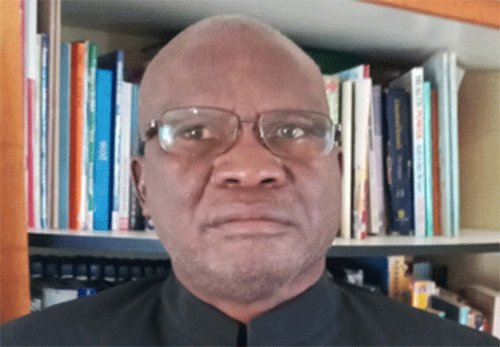Members of the Mafwe community are flocking to Chinchimane in the Sibbinda Constituency of the Zambezi region over the weekend of 1 October 2023 in a festive mood to celebrate the Lusata Cultural Festival.
The ceremony was initiated during the reign of Litunga Richard Temuso Muhinda Mamili V in 1981, with the sole aim of uniting the Mafwe linguistic categories.
The mace, referred to as Lusata, has symbols signifying the important cultural unity of the Mafwe.
Carved out of a large piece of solid ivory, the Lusata displays everything about the Mafwe under one head, one leader and their culture.
Celebrating Lusata is in line with Article 19 of the Namibian Constitution, which states that every person shall be entitled to enjoy, practise, profess, maintain and promote any culture, language, tradition or religion, subject to the terms of the Constitution and further subject to the condition that the rights protected by the Article do not impinge upon the rights of others or the national interest.
Although the ceremony was initially meant to unite the Mafwe community, one of its achievements today, as a cultural ceremony, is to attract other national groups in the SADC region.
This can be demonstrated by the nature and profile of attendees from neighbouring countries, who grace the event every year. For all the years of celebrating the event, it has been drumming, dancing and the reading of Litunga Mamili’s speech.
There is nothing wrong with that, but one would think that times and the needs of the people have changed, and the Lusata committee and stakeholders need to move with the current events and ways of doing things.
There are many sectors and areas in which the Lusata, as a cultural festival entity, can assist the Mafwe community - one of them is to educate its members to be at par with other communities.
Roots of the Mafwe: It is important for any community to know and understand their history of origin. This history should be documented for future generations. We learn the histories of other groups and nations because they were written sometime back. It is imperative that the Mafwe children know their source of origin, as they are made of more than five linguistic categories under one Litunga. This makes the Mafwe community a unique one through such a historical arrangement. For historical expediency, it is important that the Mafwe youth understand that it was Ngombala who incorporated the Mafwe into the Luyana kingdom around 1740 until the advent of the Anglo-German or Heligoland treaty in 1890.
Colonial past: Part of the colonial period of the Mafwe should be given some space on the programme. This will explain the role played by the community during the war of liberation and how the colonial process affected the lives of the Mafwe in one way or another. The children should know the heroic deeds carried out by their ancestors in defending their land.
It is a fact that many people were arrested, tortured and murdered in 1968 for supporting the course of freedom. The information is becoming scanty because it was not written, neither is it being researched and the people involved are being lost on a yearly level.
Financial institution: Lusata should establish a financial branch to take care of the monetary needs of its members. If each community member is tasked to pay a certain affordable fee per month or year, money can be collected and deposited into a bank account. This system can be used to assist young ones who cannot afford to acquire financial assistance for tertiary academic studies.
Agricultural projects: There is vast uncultivated and fallow land under the jurisdiction of Litunnga Mamili which could be upon request used for the cultivation of different crops. One of the endeavours Lusata could venture into is agricultural projects like growing cash crops such as maize, sugarcane, cotton, rice, wheat, and corn to meet the global food demand and for local consumption. Money obtained from such agricultural exercise could be ploughed back into the Lusata purse and assist in the running of educational programmes. In the long run, the whole process will assist the community and the nation at large in self-reliance in terms of food production and security and consequently reduce starvation and poverty.
Artefacts and skills: The Lusata Committee possess the ability to transform the event from a drumming and dancing entity to one which can showcase the cultural skills of the Mafwe community. This does not only focus on drumming and dancing but artefacts and other materials made by the community could be marketed within and outside the country. This will have the potential of marketing the culture of the Mafwe community internationally in which case, these cultural campaigns could earn money for the people. Through such marketing endeavours, the Lusata Committee could pool its resources and undertake trips, while showcasing the drumming and dancing skills in the process. With much determination, the best Lusata dancing troupe could find itself in the Africa House in London.
Cooperation and self-reliance: It is fundamental for the community to understand that for them to be respected by others, they need to work together and respect one another. Finally, they should find ways of helping the Government of the day instead of expecting the Government to do everything for them all the time.
*Prof. Makala Lilemba is an academician, administrator, author, diplomat, motivated leader, researcher and scholar.


